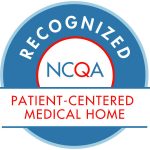Table of Contents
 In the last two decades, the number of children diagnosed with Autism Spectrum Disorder has skyrocketed. While we have a lot to learn about the causes and best interventions for ASD, our understanding of how to help children and families live with autism has grown significantly. According to the Centers for Disease Control, one in 44 children is identified with Autism Spectrum Disorder, and diagnoses have quadrupled in the last two decades. But parents often wonder how to tell if their child has ASD. Your pediatrician is an essential partner in autism screening and diagnosis. We also play a vital role in helping children with ASD, and their families lead meaningful lives and get the services they need.
In the last two decades, the number of children diagnosed with Autism Spectrum Disorder has skyrocketed. While we have a lot to learn about the causes and best interventions for ASD, our understanding of how to help children and families live with autism has grown significantly. According to the Centers for Disease Control, one in 44 children is identified with Autism Spectrum Disorder, and diagnoses have quadrupled in the last two decades. But parents often wonder how to tell if their child has ASD. Your pediatrician is an essential partner in autism screening and diagnosis. We also play a vital role in helping children with ASD, and their families lead meaningful lives and get the services they need.
What Is Autism Spectrum Disorder?
The CDC defines Autism Spectrum Disorder as a developmental disability caused by differences in the brain. The medical community is still learning about the causes of autism and what has led to the dramatic increase in diagnoses in recent decades. We know that people with ASD often behave, communicate and learn in different ways from their neurotypical peers. Because ASD is truly a spectrum, the abilities of people with ASD vary widely. Some children with autism may be highly verbal, while others are nonverbal.
What Are the Three Main Symptoms of Autism?
The National Institutes of Health has identified three main categories of ASD symptoms. They include:
Communication Challenges
- Your baby or toddler may demonstrate communication challenges, including responding to their name, explaining what they want or following directions.
- Some children with ASD meet developmental milestones until around 18 to 24 months of age, and then they stop gaining new skills or lose the skills they once had, according to the CDC.
Social Challenges
Your child may have challenges interacting with others, including:
- Not smiling when someone smiles at them.
- Avoiding eye contact.
- Preferring to play alone and lacking interest in other children.
- Tuning people out and appearing to be in their own world.
Routines and Repetitive Behavior
- Getting stuck doing the same things repeatedly and having trouble moving on to other activities.
- Showing an unusual attachment to toys, objects or routines.
- Repeating words or phrases.
How Is My Child Screened for Autism?
There’s no official medical test for autism. Instead, diagnosing ASD involves a screening process that can take months or even years. It usually starts with your pediatrician monitoring your child’s development and behavior as they move from the infant to the toddler years. We can often diagnose ASD at 18 to 24 months. However, some children aren’t diagnosed until much later. The CDC outlines three primary components of ASD screening:
- Developmental monitoring: ongoing observation of your child’s growth, development and milestones. Monitoring involves an ongoing partnership between parents and other caregivers and pediatricians.
- Developmental screening is a more formal look at your child’s development at their regular pediatric checkups. Your pediatrician may ask about language, movement, behaviors and interactions.
- Developmental diagnosis: your pediatrician may recommend a formal evaluation by a developmental pediatrician, a child psychologist or another specialist. This step can determine whether your child meets the criteria for an ASD diagnosis and recommend early intervention services.
What Interventions Can Improve Quality of Life After an Autism Diagnosis?
When we talk about “treating” autism, we are really talking about helping individuals with ASD improve their daily functioning and quality of life. Because people with ASD have unique strengths and challenges, an individualized approach is essential. Family, educators, medical specialists, therapists and your family pediatrician all play a role in supporting children with ASD. Some interventions that can help improve function and quality of life include:
- Behavioral approaches, including Applied Behavior Analysis, focus on changing behavior by reinforcing positive behaviors and discouraging negative behaviors.
- Developmental approaches focus on improving specific developmental skills, including speech and occupational therapy.
Social-relational approaches focus on improving social skills. - Medications can treat conditions that coexist with ASD, including anxiety, depression and ADHD.
Psychological approaches can help people with ASD address mental health challenges.
How Can My Family Pediatrician Help Support My Child With Autism?
Early intervention is vital in creating positive outcomes for patients with ASD. That’s why routine screenings and monitoring with your pediatrician are essential. If you have concerns about your child’s behavior and interactions in the baby and toddler years, share them with your pediatrician so they can begin the screening and diagnosis process. At Loudoun Pediatric Associates, caring for our patients with ASD and supporting their families is a priority. Our team focuses on an individual approach, highlighting every child’s unique strengths and needs. Our goal is to help children and families improve their quality of life and get the support they need at every level, from schools to therapy and beyond.







